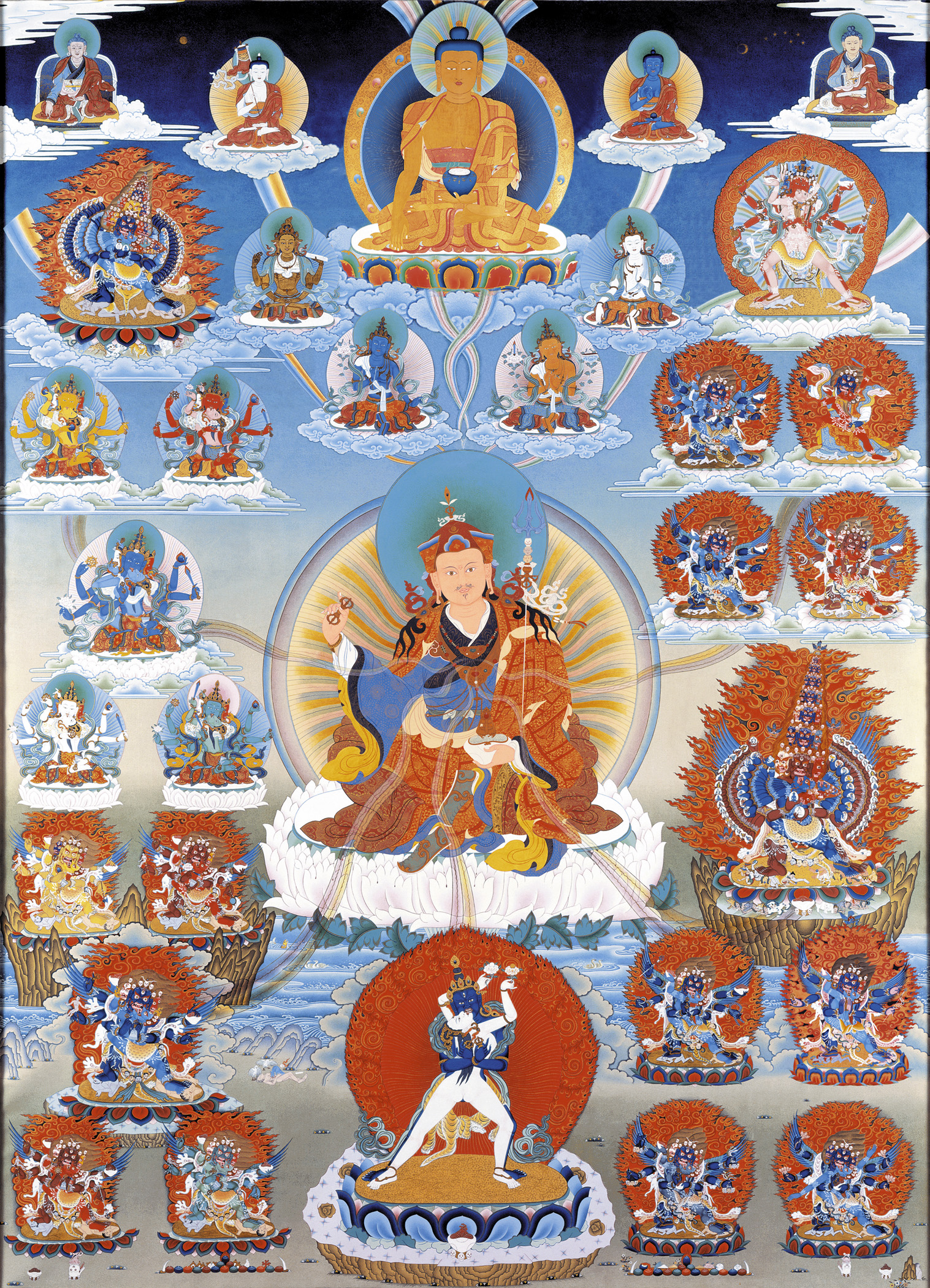Well done! The seven-year HR2.0 is coming to a close and it's time to dedicate it well and plan for our path of study and practice ahead.
The Sanskrit word Tara and the Tibetan word Drolma mean ‘to liberate’ or ‘to cross over’. Tara was given her name because, as a bodhisattva she pledged to liberate a hundred thousand beings every day. Therefore, she was called Tara, the Liberator, “she who liberates”, or in relation to the second meaning of the word, “she who ferries us across the ocean of samsara.”
Vajrakilaya (Skt.), or Dorje Phurba in Tibetan, is a yidam deity who embodies the enlightened activity of all the buddhas and whose practice is famous for being the most powerful for removing obstacles and destroying the forces hostile to compassion.
Narak Kong Shak, ‘The Sovereign Practice for the Confessions of All Violations and Breakages, Negative Actions and Obscurations’ is a famous practice of confession and fulfillment within the Nyingma tradition, and is the main Vajrayana confession practice with do in Rigpa.
The practice of tsok is an important Vajrayana practice of offering and purification. We will be studying the meaning and significance of tsok in some detail, as well as its benefits.

All you need to know to practice the sadhana of the brief Tendrel Nyesel practice.
A comprehensive resource for studying & practicing the daily practice of Riwo Sangchö, one of the main sadhana practices of the Rigpa sangha.
